After “disaster,” jockey John Hiraldo hoping to pick back up
They say racing’s a tough game, and one of the horses jockey John Hiraldo was named to ride Saturday at Delaware Park is named Tough Game. But none of that likely prepared the 21-year-old for the week he just experienced.
“A disaster,” his fiancee, trainer Chelsey Moysey, described it. “I don’t think I’ve cried as much as I have the last few days.”
“I’m doing OK today,” Hiraldo agreed, “but the last couple days, man, the world fell on me.”
Hiraldo’s situation is an interesting object lesson in the guilty-until-proven innocent (and maybe not even then) world of social media in 2023. It also raises questions of whether rules designed in a different – and slower-moving – era need updating to account for the lightning speed of information today.
The good news for Hiraldo is that he will be back in the irons this week. He is named to ride in four races Saturday, July 15, and he’ll be able to pick up mounts earlier in the week if any come open. But the road to getting there has been anything but smooth, involving a false drug positive and the resultant scrutiny and criticism.
Hiraldo entered last week with high hopes, named on nine horses, several live, and enjoying a productive meet in Stanton, DE. He has eight wins from 62 local mounts, good for ninth in the standings. But on July 5, as he was preparing to head to the jockeys’ room prior to the day’s races, he was asked to appear before the stewards, who then required him to submit to a random drug test.
It came back positive for “amphetamine.” That came as quite a surprise to the young rider; he says he wasn’t using anything, not even a legal over-the-counter medication that might have spurred a false positive.
CHECK OUT THE LATEST OFF TO THE RACES RADIO!
But he was also informed that he could take a second test at a testing lab and that that result, if clean, would supersede the results of the field test. In the meantime, pending the results of the second test and a hearing, he would be suspended.
“I told them that I would like to go to a lab and defend myself, and I did, same day, a couple hours later,” HIraldo said.
But by then, the ruling had been issued by the Delaware Thoroughbred Racing Commission (DTRC) stewards. Hiraldo had “tested positive for ‘Amphetamine,’” it read. “Jockey John Paul Hiraldo is ‘Summarily Suspended.’” And then it appeared on the Association of Racing Commissioners International website, and from there in the Blood-Horse and Paulick Report and onto social media.
“So quick, less than 30 minutes, everything was all over social media,” Hiraldo said.
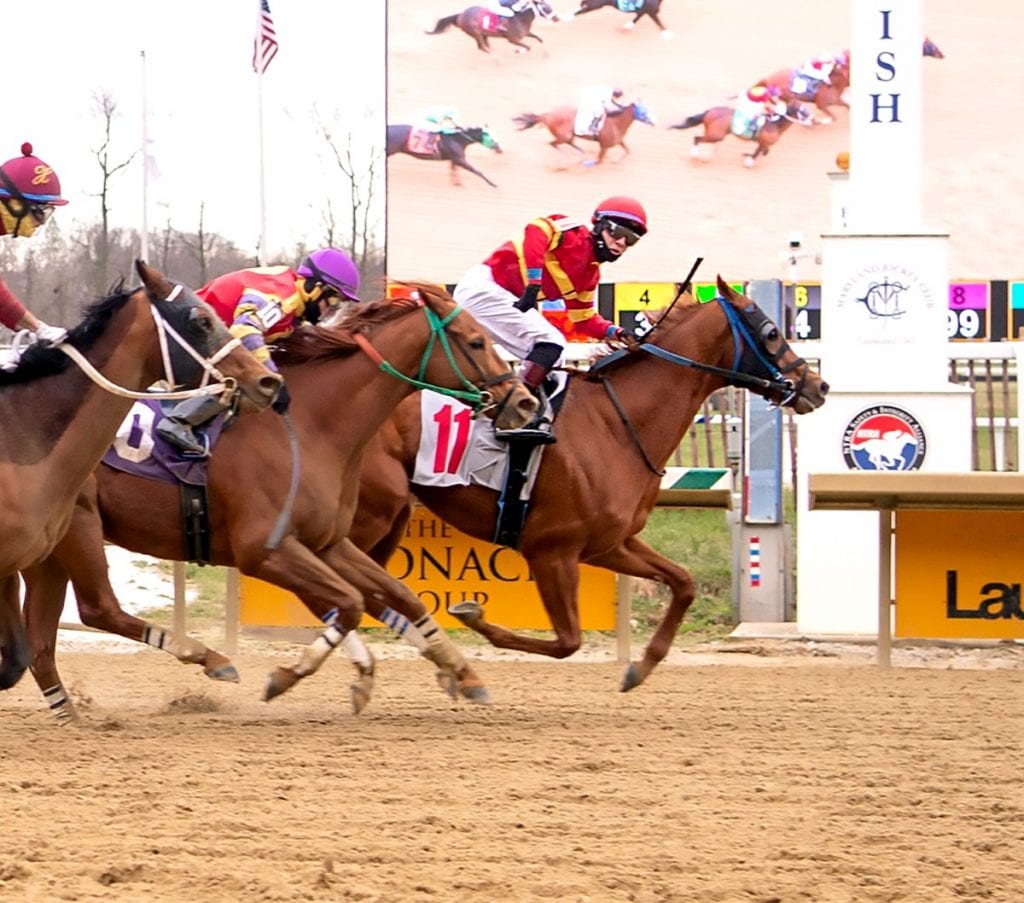
Predictably, what social media took away was not a measured “wait for all the facts to emerge” message. Far from it, Hiraldo said.
“I was seeing a lot of, ‘Horses are being drugged down. Now jockeys are being drugged down. Who wonders what [else] he was taking?’” the rider said. “And you know, a lot of people were saying, like, ‘Oh, he’s a loser, just like any other pill addict.’”
“I don’t know Hiraldo’s personal situation,” one person wrote on Twitter, immediately suggesting they actually do. “But maybe a jock wouldn’t have to resort to amphetamines if weights were increased.”
Even as that message was spreading, the lab test was finding something different: that Hiraldo was clean. No amphetamines. No anything else. The results of the test were provided to The Racing Biz by Moysey.
The official results didn’t come back until Saturday, at which point the stewards held a follow-up hearing. Saturday afternoon, the stewards amended their initial ruling to acknowledge Hiraldo’s clean lab test and to rescind the original suspension. But some level of damage was done.
“It had bad negative vibes, and it’s just not fair to him,” Moysey said. “Because it was nothing: he immediately tested negative.”
According to Moysey and Hiraldo, the test employed by the Delaware Thoroughbred Racing Commission is one available over the counter at a local drug store. That could not be independently confirmed by The Racing Biz, but if true, those tests, while generally reliable, are not considered to be as accurate as those conducted by laboratories.
It all raises the age-old question of accused everywhere: where does one go to get one’s reputation back?
Beyond the reputational damage, the brief suspension cost Hiraldo real dollars. Two of his nine scheduled mounts won this past week, and four others finished in the money, generating purse earnings in excess of $25,000. Hiraldo’s take would likely have exceeded $2,000. What’s more, given how early Delaware enters, Hiraldo was unable to accept mounts for Wednesday, Thursday, or Friday of the coming week while under suspension; if he is unable to pick any up, he will end up missing seven full days of racing.
And going forward, some of those mounts may not come back immediately. Which owners will want to switch back to HIraldo off a win or a good effort with a different jock?
Some of those damages are unavoidable. If riders are suspected of using drugs, it is incumbent on state commissions to bar them in the interests of the safety and well-being of all riders and horses until those suspicions are allayed. Once the initial test was positive, the Commission had no choice but to bar him until the second test.
In an email, DTRC executive director Sarah Crane said that “nothing unusual” had occurred in the Hiraldo case. And Hiraldo praised the “helpful” behavior of the stewards, while saying of the case, “It is what it is.”
Even so, one has to wonder: do those protocols need to be updated? Is it fair in a case like this to forbid the rider from accepting mounts for races that may be run after the suspension ends? Does it make sense to inform the world that he tested positive when the results of a second, more accurate test are pending?
“It just sucks to have your name thrown like that,” Hiraldo said.
Moysey agreed.
“I think they should have waited [to make the results public] at least until the other test results came back,” she said. “Because they don’t trust their own results: that’s why they send you [to get a second test at a lab].”
They’re both hoping to put this behind them.
Despite the “rumor mill,” Moysey said, “My owners are extremely supportive. You know, everybody was like, ‘That’s gotta be wrong. John is a great kid.’”
LATEST NEWS



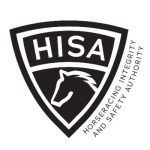
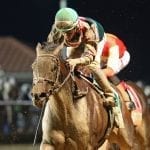
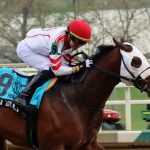
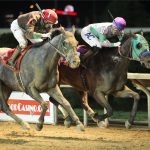
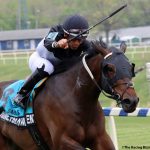






Good job by Frank to raise these questions. Maybe with expensive HISA fees the initial testing can be improved.
Ridiculous…Defamation of character. Social media amplifies and adds fuel to the falsehood.
“According to Moysey and Hiraldo, the test employed by the Delaware Thoroughbred Racing Commission is one available over the counter at a local drug store. That could not be independently confirmed by The Racing Biz, but if true, those tests, while generally reliable, are not considered to be as accurate as those conducted by laboratories.”
If Delaware Park isn’t using the most accurate test then Delaware park should not be suspending anyone for a positive test. I think the jock should sue the silks off anyone and all involved in his suspension. And the rest of us involved in the industry should sue for damages. These false positives and taking down horses for pico grams of non banned substances just plays into the false narrative that horsemen are cheaters. The industry is killing itself and HISA is the grand facilitator.
Unless there is some other evidence,like a field sobriety test the suspension
should not have been enforced until the lab test came back.
Unless these tests become infallible they should not be given.